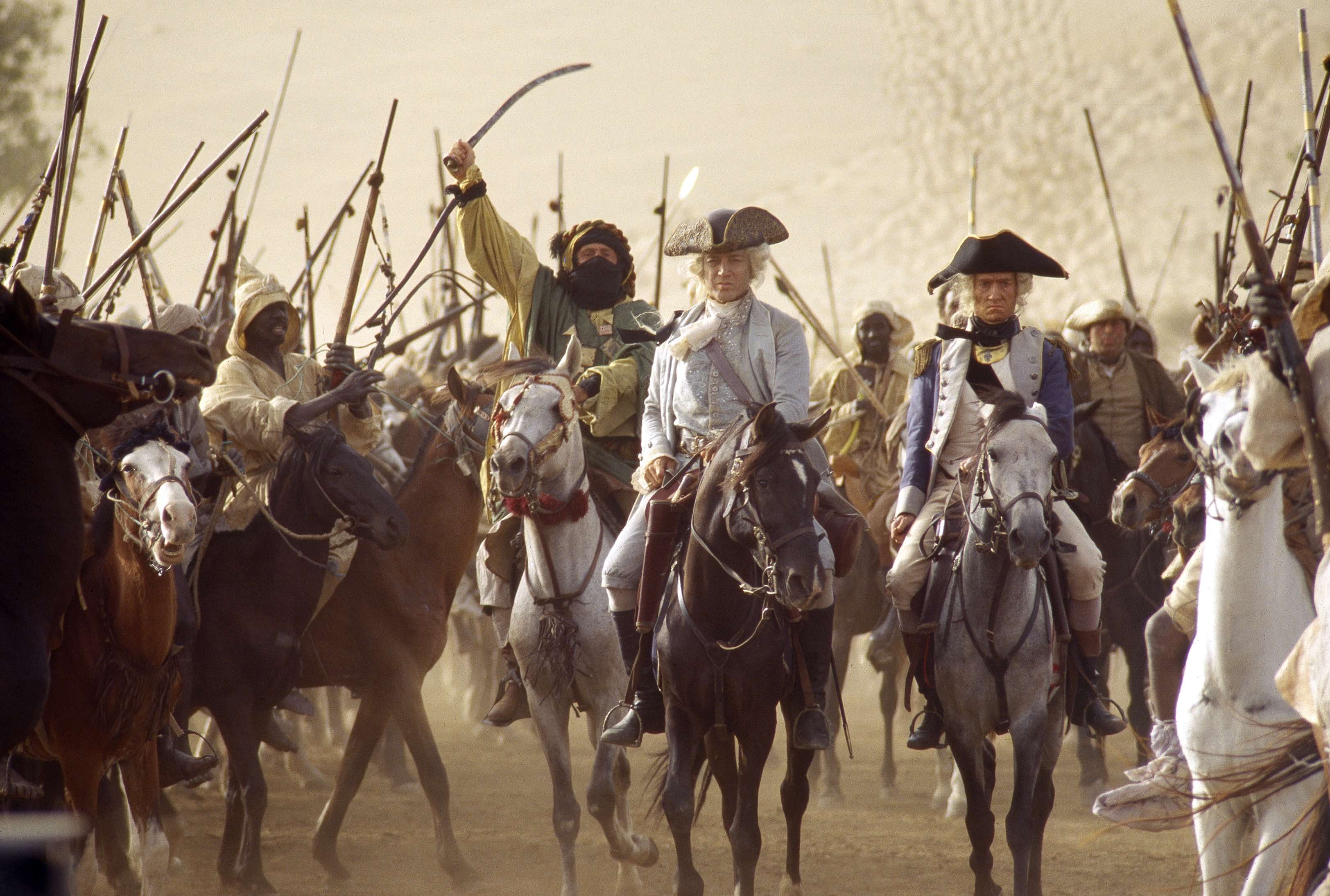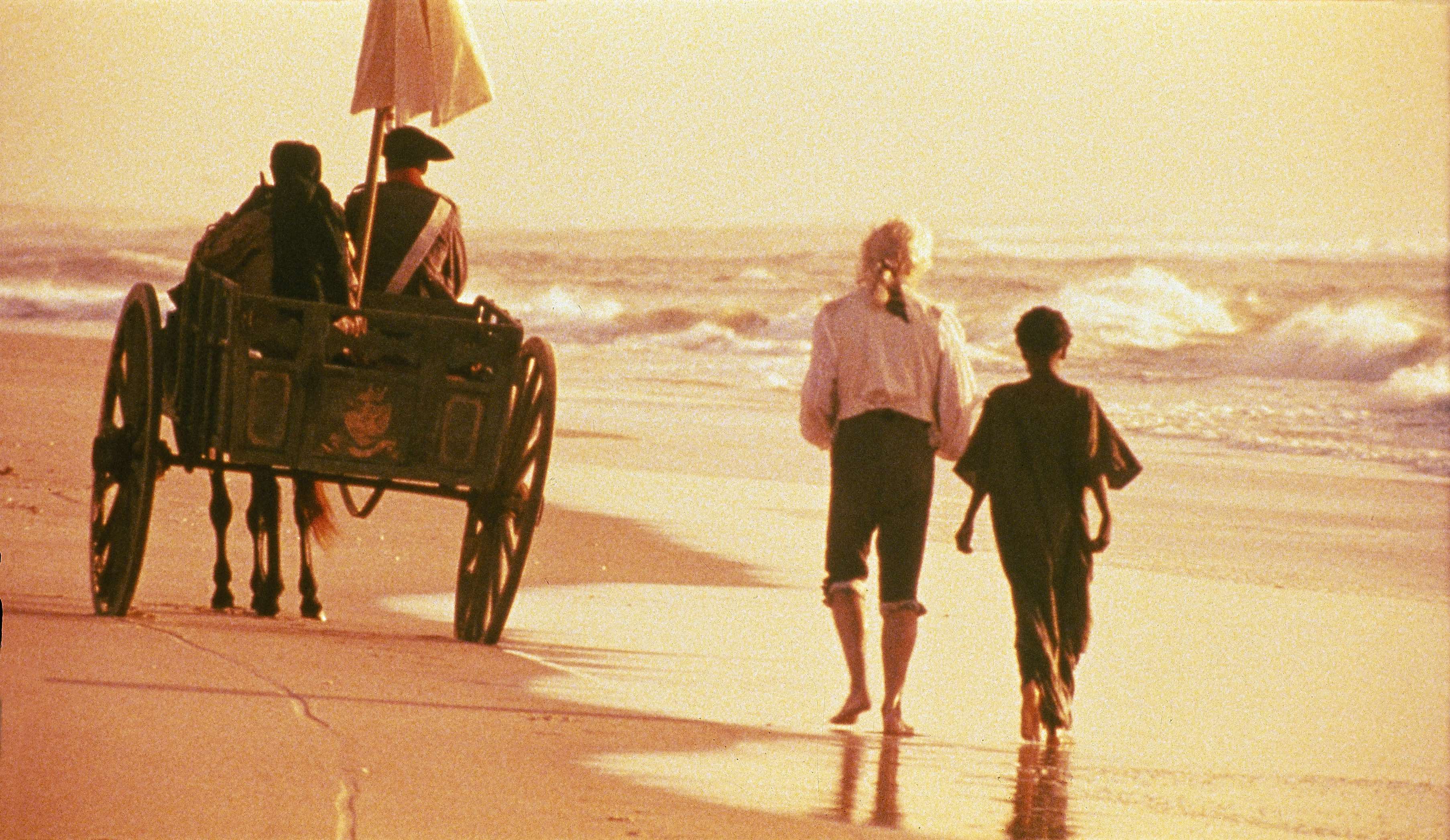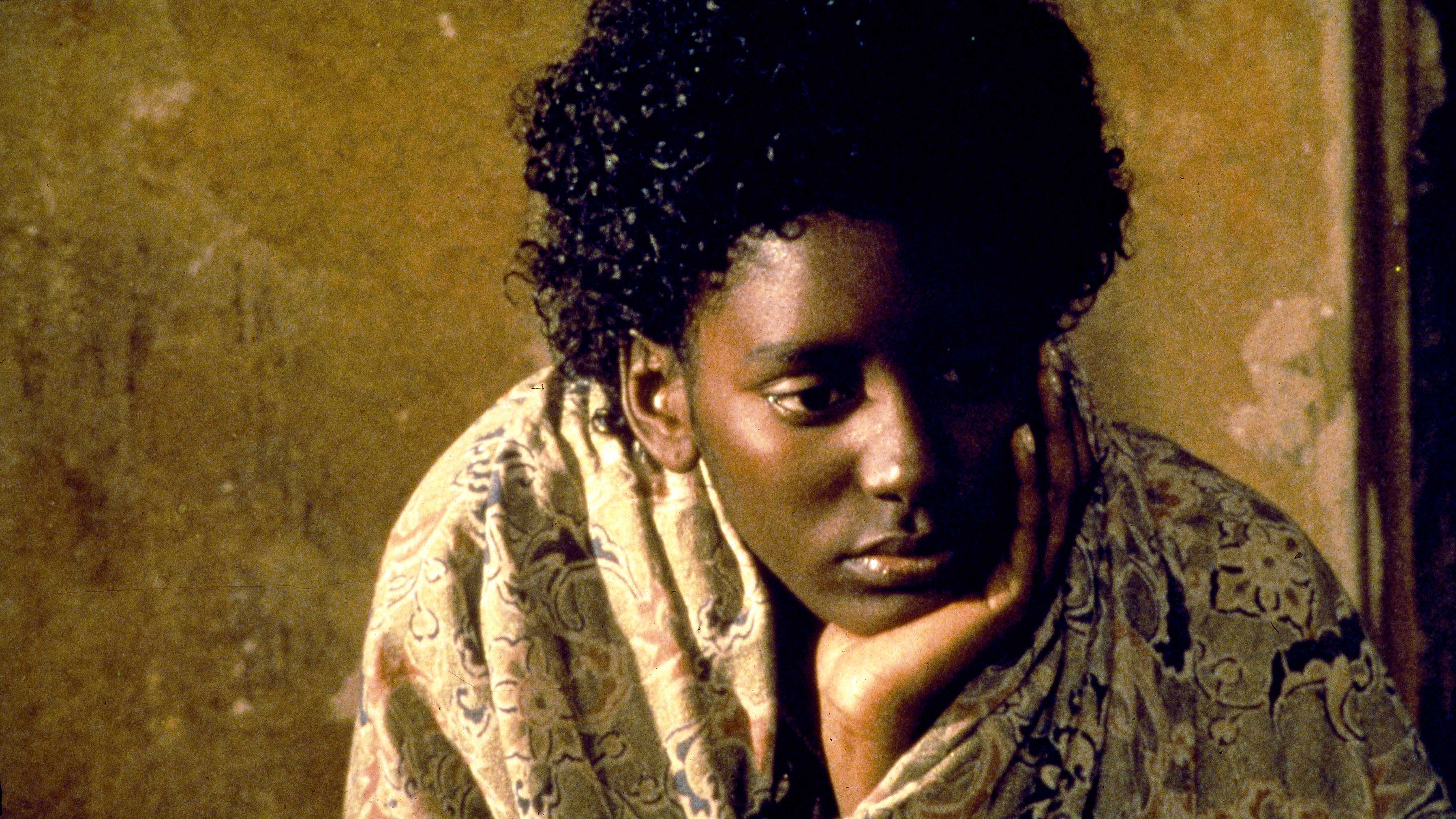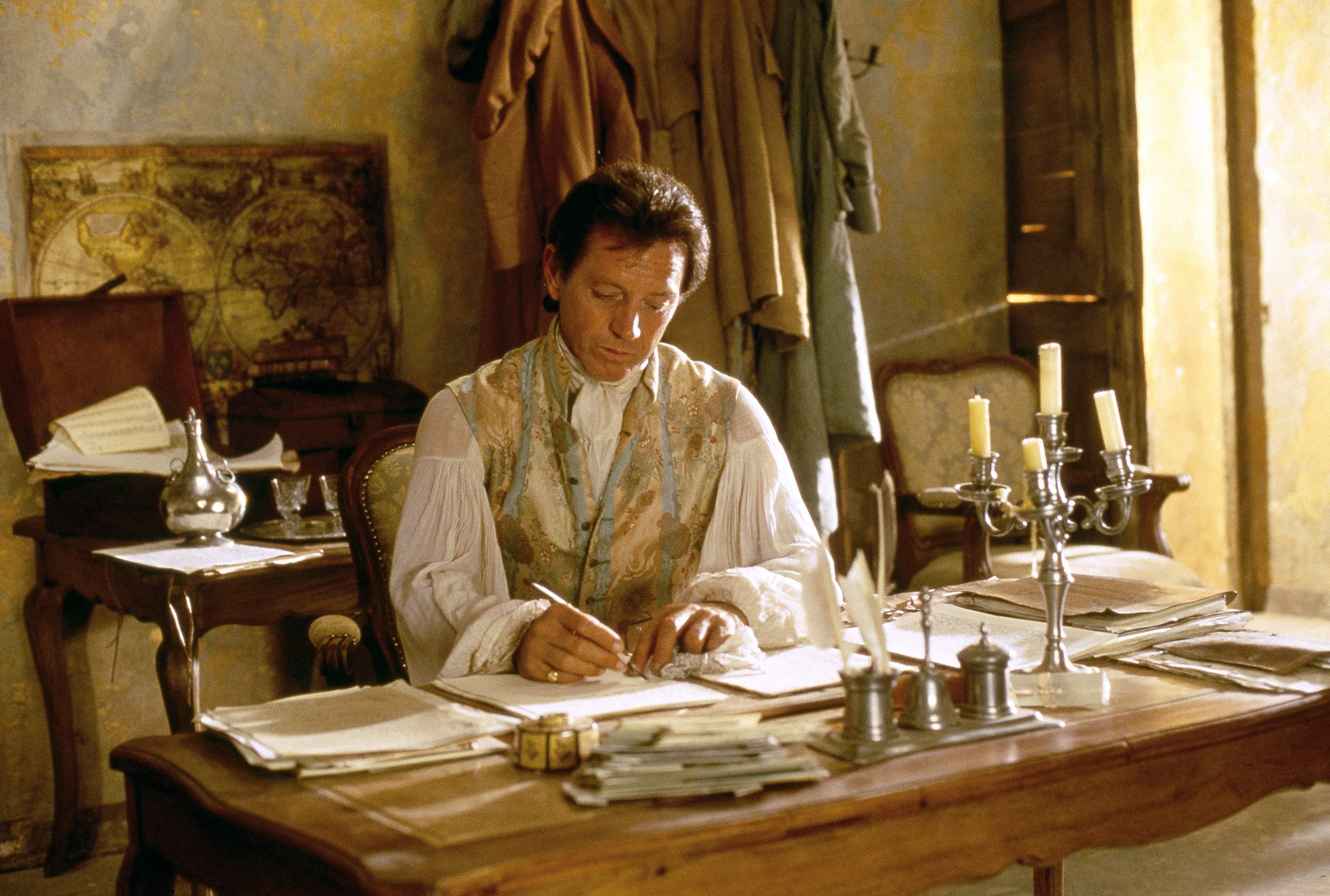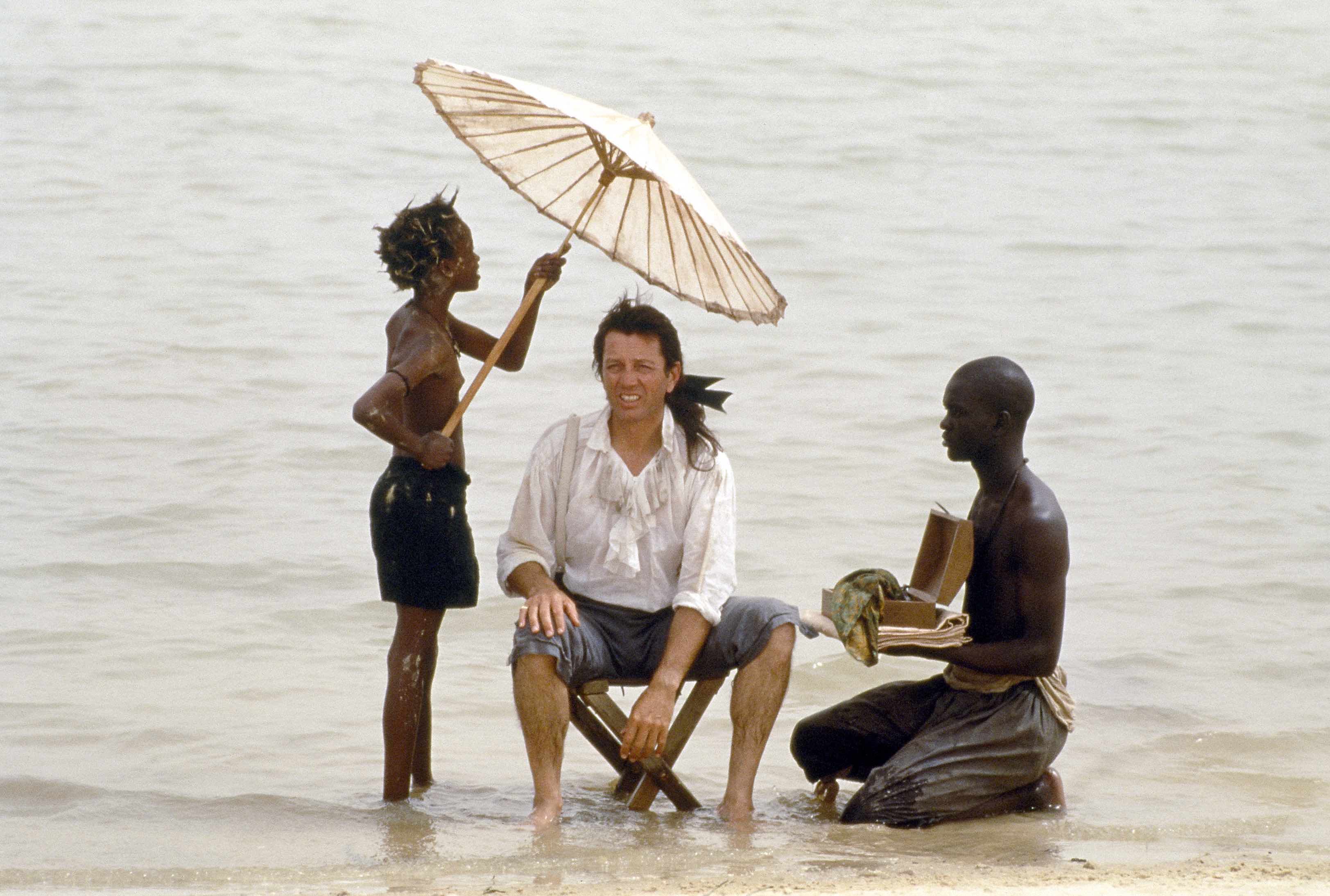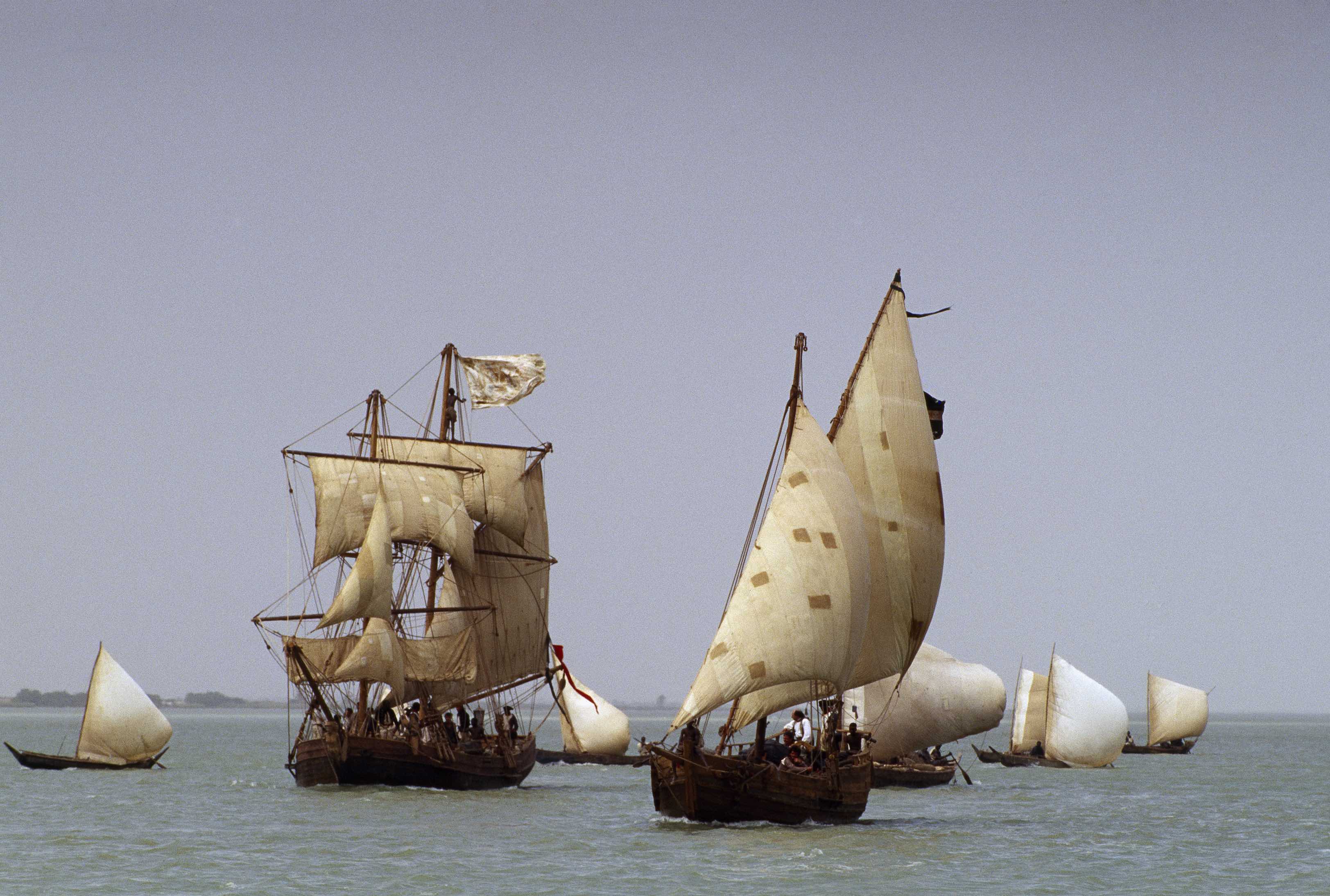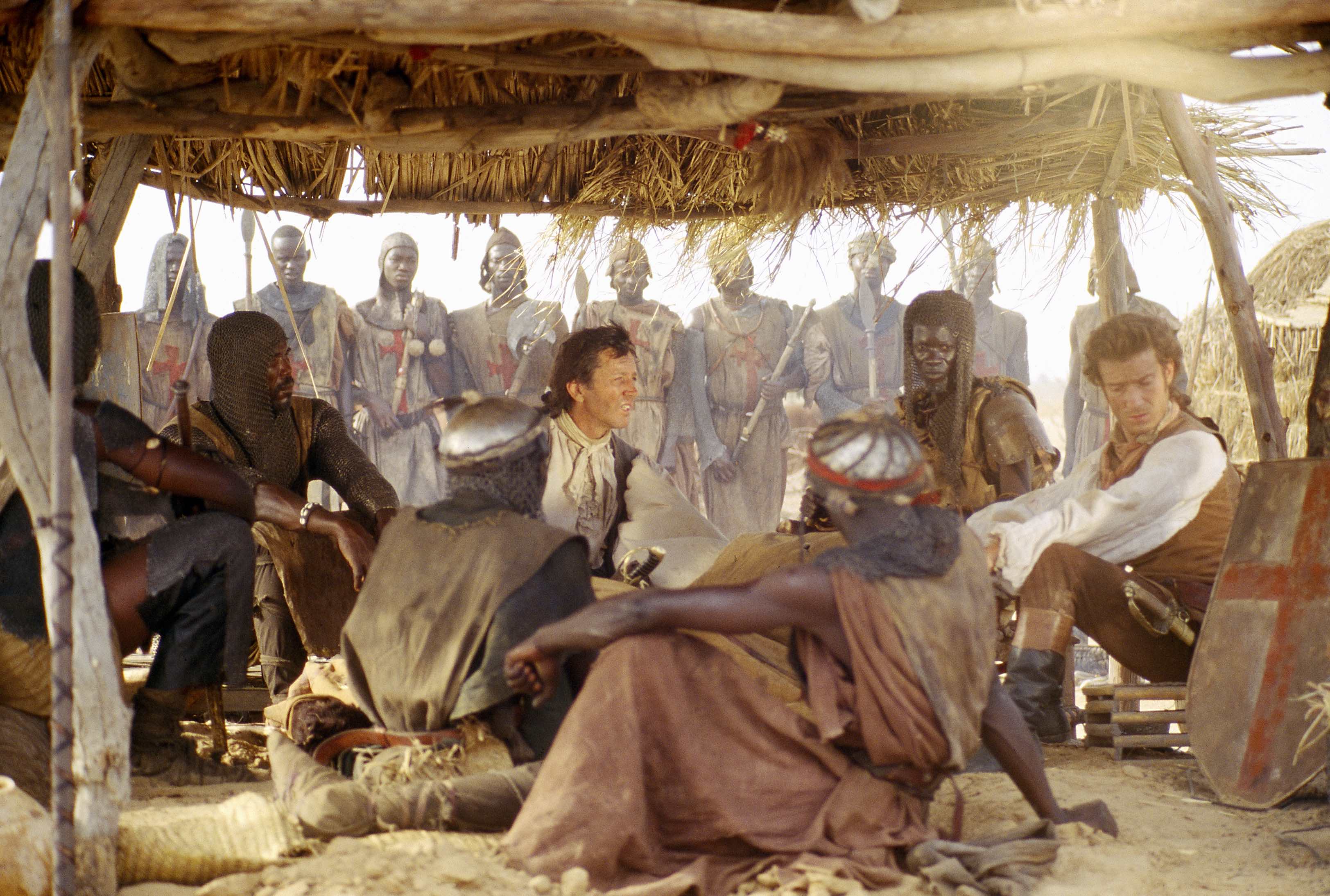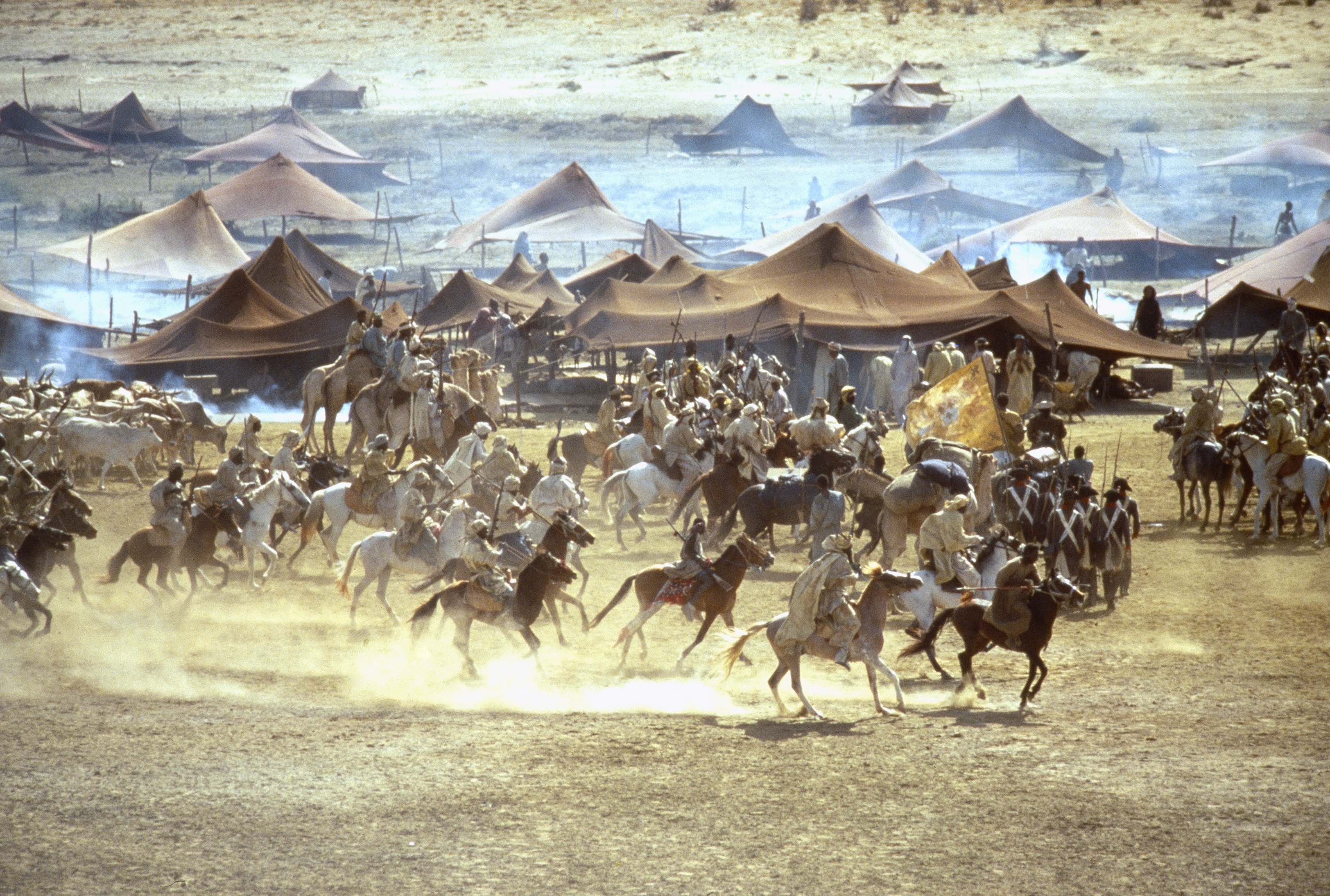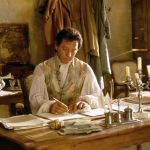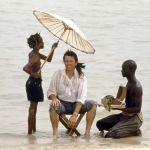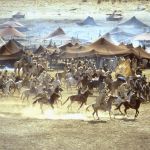" My story begins on this day of 1787 in the meadows of a castle in Anjou. This was my last duel and my first day… The king was exiling me to the African coast as the Governor of a minute colony, a sandy trading post delivered up to the whims of a river. "
AFRICA IS YOUNG
Jean-François encounters an Africa that apparently hasn't moved for centuries. The transmission of tradition and culture is oral, so therefore this is a country that must be listened to, that a man must take time to discover. Africa is young, as Pierre Combaud (Thierry Fremont) reminds us; Jean-François discovers this little by little. This is a physical film where everything results from African rhythms.
Jean-François is fascinated by this continent, this black body. He wanders along the river seeking himself, recognizing others and their difference.
THE REVOLUTION AND AFRICA
The French Revolution was simmering away far from Africa. Mail took weeks to arrive, a boat put in every six months... the long days passed in ignorance. The thoughts of such philosophers as Beaumarchais, Rousseau, Diderot and Marivaux, and the work of the abolitionists only arrived on the shores of Africa in the vessels of the slave trade. Such a distance and a path to travel. True, the abolition of privileges was linked to the Revolution but no one really cared about Africa. The slave trade and the trade in gold were booming; too many people had a vested interest in maintaining the petty wars between the black kings, involving even freed slaves who had taken shares in the slavers' trade. Some time after the Revolution, Napoleon would officially re-establish slavery that had only ever been abolished in the law books. The title of citizen changed nothing. Everything was happening in France and Jean-François de la Plaine (Bernard Giraudeau), the Commandant de Blanet (Richard Bohringer) and Pierre Combaud were powerless to do anything. Jean-François isn't a liberating hero, he's a pioneer, unsettled by his own ignorance.
THE DESIRE FOR FICTION
The ships would carry off shreds of this France abandoned to the wind of oblivion and sail towards another world to make ready for other torments. The human adventure, that of our discovery, feeds the film's fictional needs. 18th century Africa, be it real or imagined, carries our feelings, contradictions and emotions. Through all this turbulence, we discover the epic tale of Jean-François, governor of a trading post on a spit of sand, jostled by history's events. Freebooters, pirates and corsairs, trading posts, slave-ships and dealers are the background for the characters of one of history's most troubled periods, to the rhythms of the river.
THE WHIMS OF AN INITIATION
Propelled by the west winds, the governor's fleet glides along the river; Jean-François travels against the current. The shock of this encounter isn't realistic. The cinema blends fiction and madness, just like Jean-François de la Plaine, exiled with his harpsichord, far from Bach and Mozart, in the middle of the jungle; confronting his own culture with that of Africa. Travelling up the river... a whim of truth. Also the truth of the forty-five-year-old Pygmalion who gives in to his daughter's order to make her a woman: "I'm a woman so look at me like a woman." However, at first, this cultured libertine doesn't sense the forthcoming French Revolution, nor even his own revolution, leading to the subject of the film… When he leaves France in 1785, the country is living in the ease of the nobles' royalty and the poverty of the people. Jean-François de la Plaine sets off to be a governor, a man in exile, inside a formidable prison. He is a racist, as one could be at the time, as people are today. Servitude in France wasn't glorious and seemed very much like slavery. Jean-François had no reason to take offence at seeing a black person mistreated. Only the trade in this mass slavery and the sight of the chains will succeed in unsettling him. Cast into a totally different world, he will be fascinated by the youth of this continent, troubled by what he perceives as its immobility and will simply become impassioned, discover it and love it... What would have happened to him during the Revolution? One can easily guess. But another fate awaits him; this man of the Age of Enlightenment will gradually allow the sound of his harpsichord and the flute to mingle with that of the fire, percussion, perfumes, scents and sensuality. He will observe Pierre Combaud, esteem Blanet, wonder about this other form of happiness, the beauty, the songs. He will love the answer to his questions and the choices of Africa. Providence will place on his path, as a gift, a young slave that he will grow fond of and with whom he will complete his own revolution; she will be his daughter, his wife and the mother of his child; she will be his love and his story. She is the symbol, the reflection of his pain and the light of his experience. He encounters the Other. His return to France will be his true exile.
THE UNACCEPTABLE NORMALITY
The wager of the film was to suggest a terrifying normality, without being voyeuristic. Serfdom in France wasn't any more glorious than slavery; it was the daily lot of the people, like those servants who slept before their master's door. That suffering wasn't concealed. The slaves were embarked at night, they were packed in their hundreds on board the slave-ships and the slave markets were merely the showcase for this demeaning trade. The nobility didn't visit the holds and spent little time in the slave quarters that were located just next to their houses. The violence and horror of this slavery was never visible to the deliberately blind eye. Even today, we accept daily misery; we pass by it without seeing it. Slavery has only been officially abolished in certain African countries during the last decade. Has our approach today changed that much? Therefore, Jean-François will need pointers to arouse his curiosity, his awareness, provoke his surprise, unease and development. Music, love, the friendship of Commandant de Blanet and his aide-de-camp, Pierre Combaud, and the distant echoes of the French Revolution will be at the origin of his evolution in the heart of this unacceptable normality.
REVUE DE PRESSE
Director's declaration of Bernard Giraudeau on the film, Les caprices d'un fleuve
"I wanted to tell the remarkable story of a man exiled by the King to a West African trading post, […]
Director's declaration of Bernard Giraudeau on the film, Les caprices d'un fleuve
"I wanted to tell the remarkable story of a man exiled by the King to a West African trading post, from just before the French Revolution to the birth of the Republic and the death of Louis XVI..
I wished to make it a love story shattered by historical events, an adventure movie in the desert, in the heart of the jungle, along the Senegal River and on the African coast.
The ship-builders from Nantes and La Rochelle built vessels to trade in morphia, gum, Galam gold and above all in Bambara, Toucouleure or Saracolet blacks.
The endemic wars between the Negro kings provided slaves for the ships leaving for the West Indies. The ships' crews took on men, women and children, killing all resisters. The silence of the Century of Enlightenment was deafening.
But the film talks less of slavery than of tolerance and above all of the acceptance of difference. It's the rite of passage of a deeply European man, a noble, elitist Frenchman, blinded by the luxury and comfort of his condition, who becomes aware of the continent around him.
Some types of ignorance are as damnable as silence.
France moves inexorably towards revolution. Her people awake. But France is far away. In his palace of sand, the hero of this story will not experience the turmoil of revolution. His fate lies elsewhere. There is another journey to be accomplished, unexpected love to experience, music to listen to, a culture to be explored. The new man will be born.
How does he discover the black race? But, more important than anything else, who is Amélie Maimouna Ba, the Peul slave? In the face of doubts and contradictions, he discovers sensuality and racial blending.
He will live his African experience as very few white people lived it at the time.
Heartbreak and doubt will mark out the river of his African life. The master and the slave. Father and daughter. Man and wife.
In the days of the French Revolution, in a virgin land that the white man has already crushed, the hero of this story attempts to "Praise Difference" in the way that Albert Jacquard would two centuries later."
I wished to make it a love story shattered by historical events, an adventure movie in the desert, in the heart of the jungle, along the Senegal River and on the African coast.
The ship-builders from Nantes and La Rochelle built vessels to trade in morphia, gum, Galam gold and above all in Bambara, Toucouleure or Saracolet blacks.
The endemic wars between the Negro kings provided slaves for the ships leaving for the West Indies. The ships' crews took on men, women and children, killing all resisters. The silence of the Century of Enlightenment was deafening.
But the film talks less of slavery than of tolerance and above all of the acceptance of difference. It's the rite of passage of a deeply European man, a noble, elitist Frenchman, blinded by the luxury and comfort of his condition, who becomes aware of the continent around him.
Some types of ignorance are as damnable as silence.
France moves inexorably towards revolution. Her people awake. But France is far away. In his palace of sand, the hero of this story will not experience the turmoil of revolution. His fate lies elsewhere. There is another journey to be accomplished, unexpected love to experience, music to listen to, a culture to be explored. The new man will be born.
How does he discover the black race? But, more important than anything else, who is Amélie Maimouna Ba, the Peul slave? In the face of doubts and contradictions, he discovers sensuality and racial blending.
He will live his African experience as very few white people lived it at the time.
Heartbreak and doubt will mark out the river of his African life. The master and the slave. Father and daughter. Man and wife.
In the days of the French Revolution, in a virgin land that the white man has already crushed, the hero of this story attempts to "Praise Difference" in the way that Albert Jacquard would two centuries later."




